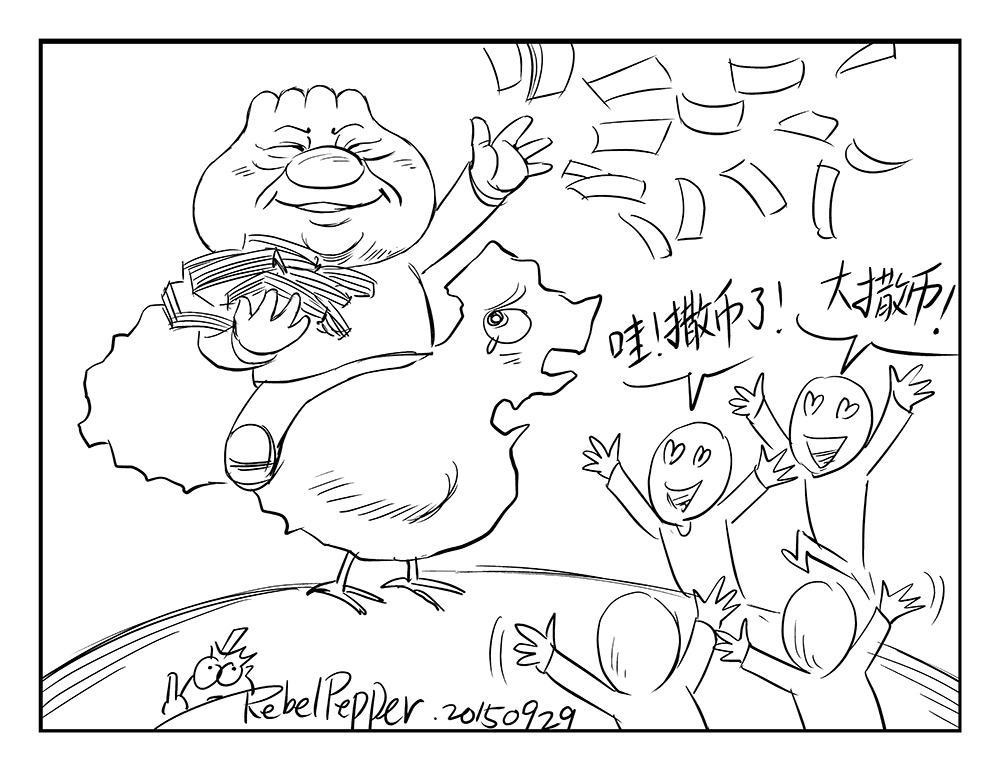The Word of the Week comes from the Grass-Mud Horse Lexicon, a glossary of terms created by Chinese netizens or encountered in online political discussions. These are the words of China’s online “resistance discourse,” used to mock and subvert the official language around censorship and political correctness.


Steamed Bun Xi, the Big Spender. (Artist: Rebel Pepper 变态辣椒)
Big Spender
Dà Sābì 大撒币
Nickname for President Xi Jinping deriding his investment in foreign countries; play on “throw money” (sābì 撒币) and “stupid cunt” (shǎ bī 傻逼).
Bitter jokes about the president’s free spending on countries other than the one he runs started in October 2015, when Xi and British Prime Minister David Cameron agreed on “up to £40bn” in trade and other deals during Xi’s visit to the U.K. Despite being the world’s second biggest economy and incredible poverty reduction over the last 30 years, China is also among countries with the great income disparity. Netizens are resentful of Chinese investment abroad when so many still struggle at home.
“The English are proud of the Magna Carta, the French of the Declaration of the Rights of Man, and the Americans of the Declaration of Independence,” wrote Weibo user Cigangnüren (@茨冈女人) around October 24, 2015. “China is proud of its Big Spender” (中国以大撒币为荣), Yunzinai (@云子鼐) replied.
CDT first detected that “Big Spender” was blocked from Weibo search results on January 2, 2016. “Throw money” (sābì 撒币) has been blocked from Weibo at least since April 5, 2016.
Can’t get enough of subversive Chinese netspeak? Check out “Decoding the Chinese Internet: A Glossary of Political Slang,” our ebook of dozens of new terms and classic catchphrases, presented in a new, image-rich format. Available for pay-what-you-want (including nothing). All proceeds support CDT.








